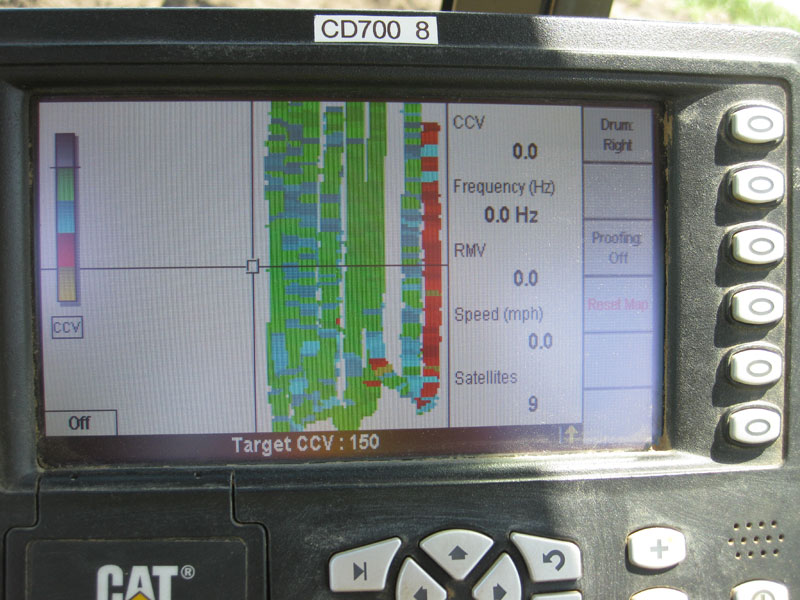Project Details
09-354
05/01/09
07/01/11
Caterpillar
Iowa Department of Transportation
Mannats Inc.
Mathy Construction
Sakai Heavy Industries Ltd.
Volvo Construction Equipment
Researchers
David White
Heath Gieselman
Pavana Vennapusa
Justin Harland
Stephen Quist
About the research
The Iowa Department of Transportation Roller-Integrated Compaction Monitoring (RICM) Research and Implementation project was initiated in summer 2009. The project was conducted in two phases:
Phase I: Three field demonstration projects were conducted in Iowa as part of the Phase I to evaluate three different RICM measurement technologies: (1) machine drive power (MDP) measurement technology on Caterpillar CP56 padfoot roller, (2) continuous compaction value (CCV) technology on Sakai SW880 dual vibratory smooth drum asphalt roller, and (3) compaction meter value (CMV) technology on Volvo SD116DX smooth drum vibratory roller. The main objectives of the Phase I include:
- evaluating the effectiveness of the RICM measurement values (IC-MVs) in assessing the compaction quality of cohesive subgrade materials, granular base/subbase materials, and HMA materials,
- developing project specific correlations between IC-MVs and various conventionally used in-situ point measurements in earthwork quality control (QC) and quality assurance (QA) practice and HMA construction,
- evaluating the advantages of using the RICM technology for production compaction operations,
- obtaining data to evaluate future RICM specifications, and
- developing content for future educational and training materials for Iowa DOT and contractor personnel for effective implementation of the technology in to earthwork and HMA construction practice.
Phase II: As part of the Phase II of this project, special provisions (SPs) were developed that required RICM technologies on three hot mix asphalt (HMA) overlay pilot projects in Iowa. The SP on US30 Harrison County project required RICM roller coverage including temperature, pass count, and compaction measurements on one break down roller. The SP on US20 Ida County project required RICM roller coverage including temperature and pass count on one break down roller. The SP on IA9 Kossuth County project required roller pass count coverage for all compaction equipment. In situ testing was conducted on each project by the Iowa State University research team beyond the requirements of the project specifications to analyze asphalt density, RICM values, and asphalt surface temperature changes with pass count and time. Correlations between RICM values and asphalt density/percent compaction and falling weight deflectometer modulus values are developed. Pass count information was analyzed using geostatistical analysis to evaluate spatial uniformity in pass coverage.




